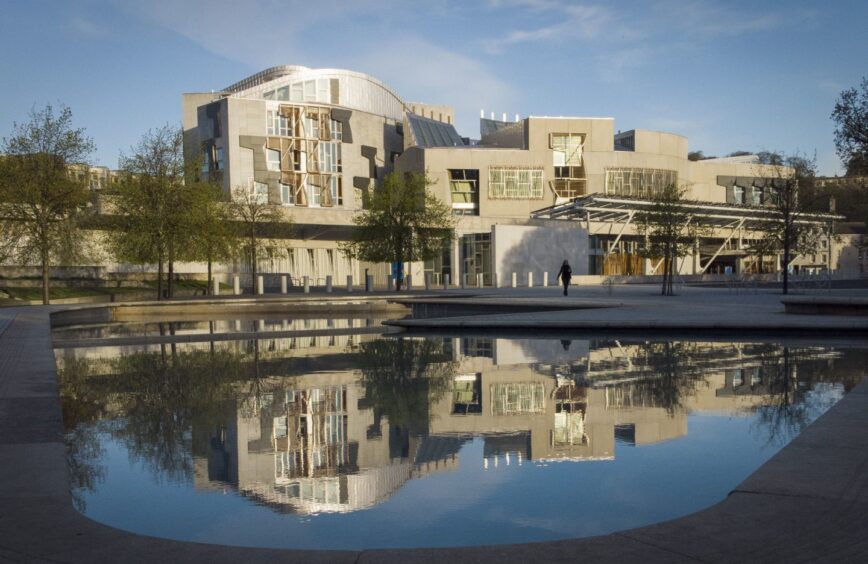
The big bust-up at Holyrood needed a trigger point and that came when the SNP-Green administration formally dropped its target for a 75% cut in emissions from 1990 by 2030.
This was made unavoidable by the report of the Climate Change Committee which told them the target was “beyond credible”. They could pretend no longer. The rest, as they say, is history.
Yet what was this sacred target all about? It represented a classic case of how the Scottish Government operates. They wanted to boast that Scotland was a “world leader” ahead of the UK.
From that piece of nonsense, everything else flowed. A target which should never have been set became the Holy Grail that could not be denied.
Do not take my word for any of this, I have an insomnia-driven habit of reading transcripts from Scottish Parliament committees. It usually works! But the other day, I came across the rare exception. Instead of sleep, I wanted to cheer.
Holyrood’s Energy, Transport and Net Zero Committee was reviewing the report about Scotland’s progress towards net zero by the Climate Change Committee. The witnesses were its chief executive, Chris Stark, and its “Scotland Champion”, Professor David Bell.
My enthusiasm for what they said was guided by the fact it coincided largely with what I have been trying to argue for years – that setting unrealistic targets is folly and as Chris Stark put it: “ Holding up genuine action from policymakers is a good example of what happens when you have the wrong target.”
Hitting it, he continued: “would require a ninefold increase in recent rates of decarbonisation in the Scottish economy.
“We do not see a policy package that could deliver anything close to that … we have had a target for 2030 that could not be met in any practical sense”
The beauty of their evidence lay in its calm insistence that none of the objectives need to be despaired of. On every front, failings were rooted in timescales which were driven by an unrealistic target.
Professor Bell said: “If we are on a pathway that gets us to a 75% reduction by 2031 or 2032, that is still worth having, even if it is not quite 2030.
“We were progressively more concerned as the actions were not quite coming… In the end, there was a sort of paralysis in the face of the daunting challenge of getting everything done by 2030”.
If the Greens had ever troubled to read this evidence, they might wonder what there was to get so excited about when the 2030 target was abandoned.
It was a mere recognition of reality and also an opportunity to liberate the Scottish Government from a straitjacket of unattainable timescales.
The problem with Nationalist politics is that everything is couched in extremes. Either we are to be “world-leading” regardless of facts or scapegoating if we fail. In the real world, the answers lie elsewhere.
Delivery is what matters and sometimes that takes longer than is desirable. So get on with it.
Chris Stark quoted the example of carbon capture storage (CCS) and the Acorn project.
He said: “One of the benefits of removing the pressure to hit the 2030 target is that we can probably have a more sensible discussion about the pace of deployment of CCS.
“The Acorn project is a great project. We need to have CCS in the mix, because it allows us to reduce emissions in the short term and then opens up this new industry that we do not have anything at all of, which is greenhouse gas removal.
“We should do that as quickly as we can, but not to achieve fantastical targets by 2030 could purposeful consensus not have been achieved on that basis?”
“Meanwhile, in real-life Scotland, they couldn’t even consent to the Berwick Bank wind farm on time.”
As Chris Stark put it: “We must not get into a position where the planning regime or the consenting regime holds us up. We have a proud—or not proud—history of that happening in Scotland”.
In other words, concentrate on delivery and targets will look after themselves.
And how about the years wasted on arguing about North Sea licences as if they represented the Devil Incarnate? The CCC took a more measured view.
“We know that we will need gas until 2045”, said Stark. “We see that, without new licences, there will be a 97 per cent reduction in North Sea gas production by 2050. With new licences, that reduction will be 95 per cent.
“That difference between 95 and 97 is not the issue, but those two percentage points have dominated the political discussion of climate for two whole years. My biggest concern is that that has crowded out the discussion about how to get off the stuff in the first place”.
He continued: “If we do not decarbonise our demand for fossil fuels and switch to electricity, or to hydrogen … we will just be importing that stuff, which is as much an energy security concern as it is a climate issue”.
Stark added poignantly: “I slightly despair that we are having an endless discussion about oil and gas licences when the discussion about heat pumps is much, much more important overall”.
So much common sense in a Holyrood committee! It’s just a pity it wasn’t MSPs who were doing the talking.
